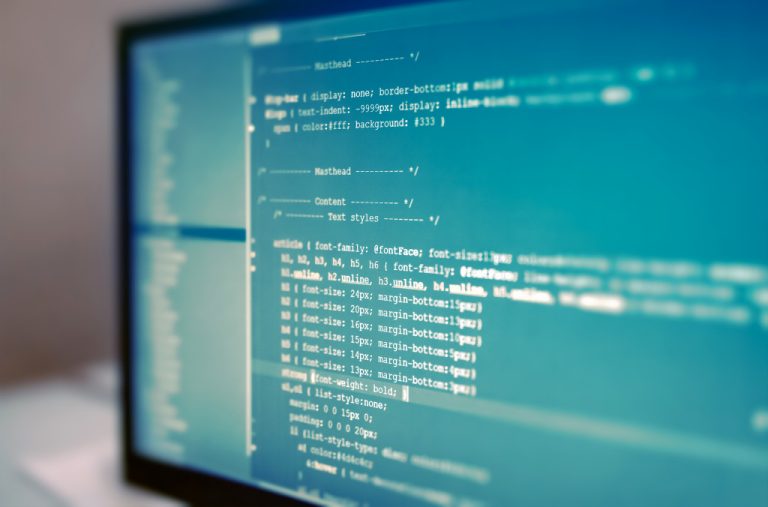As a programmer, you are probably used to working on tight deadlines and under pressure. But what you may not know is that you can also apply the skills you use every day to manage projects and meet deadlines in other fields. Your programming skills are making different industries more efficient and less stressful.
Learn about these industries below to discover some opportunities you may consider exploring.
1. Air Traffic Control
Air traffic control is one of the most important and stressful jobs in the world. Air traffic controllers must manage the safe arrival and departure of thousands of aircraft every day. They do this by following strict procedures and using various tools, including computers.
While the air traffic control system has been in place for many years, it constantly evolves. New technologies are being developed to make the system more efficient and help air traffic controllers do their job more effectively.
One of these new technologies is called automatic dependent surveillance-broadcast (ADS-B). This system uses GPS to track aircraft and provides air traffic controllers with more accurate information about the location and movements of aircraft.
Programmers are involved in developing ADS-B and other new technologies that are being used in air traffic control. They are also responsible for maintaining and updating the computer systems that air traffic controllers use to do their job.
2. Manufacturing
Programming is playing an increasingly important role in the manufacturing industry. Manufacturing companies are using computers to automate their production process. This allows them to produce more products in a shorter amount of time.
In addition, programming is being used to create virtual prototypes of products, allowing manufacturers to test the products before they are built. This helps reduce the cost of manufacturing and improve the quality of products.
Programmers are also responsible for developing and maintaining the software used to control the production process. This software must be reliable and efficient to produce high-quality products.
For example, assembly lines must work seamlessly to avoid production delays. They use various sensors, cameras, and other devices to communicate. Sensors Integration is a company that provides these technologies for many manufacturers. You can learn more about their products at https://sensorsintegration.com/.

3. Healthcare
The healthcare industry is under constant pressure to improve the quality of care while reducing costs. With this, healthcare providers are using technology to automate many tasks.
For example, hospitals are using computerized physician order entry (CPOE) systems to automate ordering medications and tests. These systems help reduce errors and improve the efficiency of the ordering process. In addition, CPOE systems can provide decision support to physicians, allowing them to make better decisions about patient care.
Programmers are involved in developing and maintaining CPOE systems and other healthcare information systems. They are also responsible for developing software used to monitor the quality of care. This software helps identify potential problems and make sure that patients are receiving the best possible care.
4. Retail
Programming also plays a role in the retail industry. Retailers use computer systems to track inventory, manage customer orders, and process payments. In addition, many retailers use self-checkout systems to allow customers to check out their own purchases.
Programmers are responsible for developing and maintaining the software that retailers use. This software must be reliable and efficient to ensure that retailers run their businesses smoothly. Many of these systems deal with money and payments, meaning security is a significant concern. This means that programmers must be constantly aware of potential security threats and vulnerabilities.
5. Banking
Banking is another industry that relies heavily on computer systems. Banks use computer systems to process transactions, manage customer accounts, and prevent fraud. Various programs are used to detect and prevent fraudulent activity.
In this field, security is of the utmost importance. Programmers must be conscientious when developing and maintaining banking software. They must make sure that the software is secure and meets all of the regulatory requirements.
Programmers also develop software that banks use to manage their investments. This software must be able to handle large amounts of data and make complex calculations. It is also essential for this software to be user-friendly so that bank employees can use it effectively.
6. Schools
Finally, schools are using computer systems to improve the quality of education. Many schools have implemented computer-based learning systems. These systems provide students with an interactive and engaging way to learn. In addition, computer systems are used to track student progress and provide teachers feedback.
Programmers can play a role in developing and maintaining these computer-based learning systems. They can also develop software to track student progress and provide feedback to teachers. Programmers can also create web-based applications that allow students and teachers to access course materials and information from anywhere.
As you can see, you can apply programming skills in various industries. In each of these industries, programmers play a vital role in developing and maintaining the computer systems essential to the business’s operation. Without programmers, many businesses would not be able to function efficiently.

